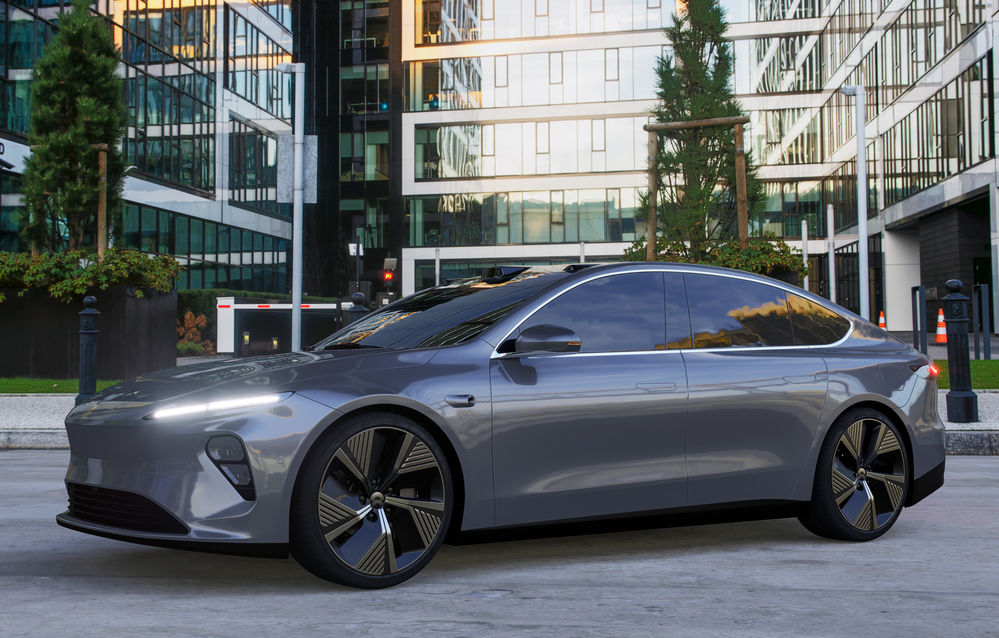Nio (NIO) stock price has pulled back in the past few days as the recent momentum waned. After rising to $7.70 on September 30th, the stock has pulled back to $6.25, a 20% retreat meaning that it has moved into a bear market. It has dropped to its lowest level since September 27.
Nio shares remain substantially higher than the year-to-date low of $3.65. It has also dropped by over 31% this year and by 62% from its highest point in 2023.
Growing EV brand
Nio has grown to become one of the biggest electric vehicle brand in China, selling thousands of cars every month.
It sells the NIO ES8, a seven-seater SUV, NIO ES6, a five-seater SUV, EC6, and ET7. Most recently, the company launched a new brand that is aiming to challenge Tesla’s Model Y, one of the best-selling cars in the country.
Onvo L60 has a pre-sale price of RMB 219,000 or about $31,000, making it cheaper than Model Y, which starts at RMB 263,900.
Nio’s advantage over other EV companies is that it has invested in battery swapping stations, where users can go, swap batteries, and receive fully charged ones. The advantage is that this solves the biggest challenge that people have when buying electric vehicles. Nio has about 2,500 swapping stations and over 22,600 chargers
Nio’s growth is seen better in its financial results, which have showed that its annual revenues rose from $1.1 billion in 2019 to over $7.8 billion in the last financial year, a 609% increase. Tesla, the gold standard in the EV industry, has increased by over 300% in the same period.
Nio’s business is doing well
The most recent delivery numbers showed that Nio’s business was doing well. It delivered over 21,181 vehicles in September, a 35.4% annualised increase. It also delivered 61,855 vehicles in the third quarter, a 11.6% increase.
These delivery numbers are notable because the general view among analysts and investors is that the Chinese EV industry is slowing.
The numbers mean that the company is doing better than Tesla, which delivered 462,800 vehicles in the third quarter, an increase from the 432k it delivered in the same period last year.
Its numbers were also notable because they included just 832 ONVO vehicles since they started selling in the end of September.
The most recent financial results showed that the business was doing well. Vehicle margins increased to 12.2%, partly because it did not slash prices as it did a year ago. Most Chinese EV companies seem to have ended the price wars that we saw last year.
Its total margin increased from 4.9% to 9.7%, while its vehicle sales jumped to RMB 15.67 billion.
Most importantly, Nio has started to narrow its losses, after completing most of its investments that were consuming most of its funds. Its net loss for the last quarter was RMB 5.04 billion or $694 million, a 16.7% decrease from the same period last year.
Nio expects that its business will continue doing well, with its third-quarter deliveries being between 61k and 63k. Total revenue will be $2.6 billion, a 3.2% increase from the third quarter of 2023.
International expansion
Nio and other Chinese companies biggest challenge is that the industry is highly competitive, with over 100 local and international brands vying for market share.
As a result, Nio is working to grow its business in other countries, especially in Europe. The challenge, however, is that Europe has voted to add more tariffs on Chinese vehicles.
Also, many European companies are working on cheaper EVs. For example, Renault has unveiled the R4 E-Tech, a made-in-France EV costing about 35,000 euros or $38,000. It has advanced features and its price may continue falling.
Nio’s other challenge is that it will need to make more investments abroad to boost its battery swapping technology.
This is notable since Nio is still losing substantial sums of money. Just recently, it received a RMB 3.3 billion investment in Nio China from a group of investors.
Nio stock price analysis
Nio chart by TradingView
The recent Nio stock surge was in line with my several forecasts, which you can read here and here.
On the daily chart, we see that the shares have remained above the key support level at $6.03, its highest swing on May 14, and the neckline of the double-bottom pattern.
It is also hovering above the 23.6% Fibonacci Retracement point, and the 25-day and 50-day moving averages.
Therefore, the stock will likely resume the bullish trend, with the initial target being at $7.70, which is about 25% above the current level. A move above that point will lead to more gains in the longer term.
The post Nio stock price forecast: buy the dip or sell the rip? appeared first on Invezz

